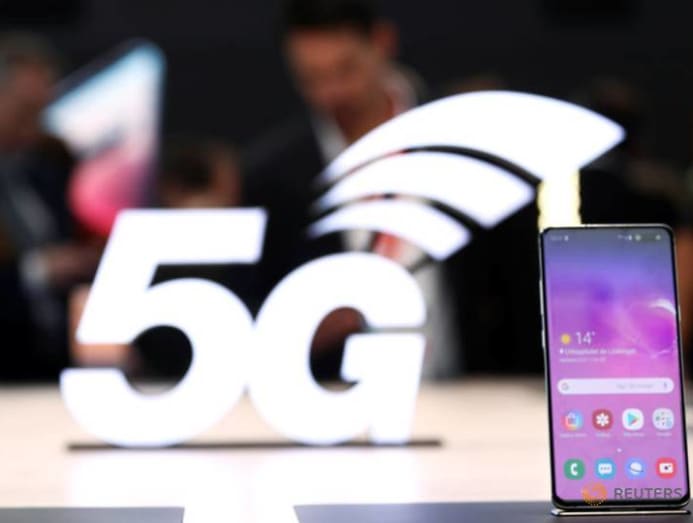The battle for 5G supremacy isn’t set. But it doesn’t have to be a zero-sum game
I find it astonishing how quickly conventional wisdom about new technology can harden. Information technology is ordinarily causeless today that 5G, the fifth generation mobile technology that has yet to go a big scale commercial reality, will be dominated by China.
Proponents argue that China is moving alee quickly to build out the necessary infrastructure, while the US and peculiarly Europe lag behind. China'due south homegrown telecoms company Huawei is decorated making deals in multiple countries, while the US chip champion, Qualcomm, has been bogged down in a multiyear, multi-continent legal battle with Apple.
Finally, many believe that information technology will be easier for a surveillance state such equally Beijing to own and harness the data that volition exist transferred via the 5G fries that will be in all sorts of products from tires, to lawn tennis shoes, to foetal heart monitors. The key idea behind this thinking is that nosotros've left the "innovation" stage of bogus intelligence use, and the only thing that matters is the data.
READ> Remember you're discreet online? Today's tech is more than powerful than you idea
I challenge this entire premise. Let'due south starting time with the chip wars. Qualcomm, the pre-eminent American innovator in 5G, outspends its domestic peers on innovation, pouring a whopping 25 per cent of acquirement into inquiry and evolution. That focus was cited by the Commission on Foreign Investment in the US last year when they pushed back against efforts by Broadcom to push through a hostile takeover of the chipmaker. (Qualcomm supporters argued that the US shouldn't allow a foreign company to acquire a world-beating innovator in a key technology expanse.)
The tri-continental battle with Apple over the advisable licensing fee for Qualcomm's chips really did hurt the company: Licensing revenues plunged by U.s.a.$2.5 billion (Due south$three.four billion) during the fight.
But at present the 2 sides take settled and dropped all litigation. Apple tree gets access to Qualcomm's patents, but the chipmaker is the bigger winner. Not surprisingly, its share price has soared, and management expects profits to render to roughly pre-dispute levels.
The deal also means that the world's most successful smartphone maker and the first visitor to launch a 5G scrap set – both American – can become on with the business of rolling out adjacent generation services. Their render to business as usual will also make it more bonny for Europeans to buy their 5G fries from Qualcomm rather than Huawei, which oddly has yet to brand a deal in mainland Cathay.
Secondly, Prc has been stacking the international telecom standards bodies with their own representatives over the past few years, and they have a head start on 5G network construction. But that does not equate to a lasting technological reward. Cathay was late to prefer 3G, just that did not end their progress in 4G, for example. There is no reason to think that the Us, or fifty-fifty Europe, cannot catch up in 5G.
The Chinese regime does have the reward of existence able to direct state-owned operators to build infrastructure, and its companies don't have to purchase spectrum before offering 5G services. Yet the first country to have an operational 5G network will not be China, but South Korea.

It's important which countries build their networks starting time, but it's not the only factor in success. The real advantages of 5G are going to come from the way in which private companies and industries exploit the potential gains from mining all the data 5G will allow them to collect. Right now, it is impossible to say exactly where those advantages volition come from. "Just equally no i predicted that one of the major uses of 4G would be a new style of calling taxis, the nearly important uses for 5G technology are also difficult to predict before it's actually available," Dan Wang, an analyst for Gavekal Dragonomics, wrote recently.
Just consider the magnitude of the information that is going to be generated past 5G. According to IDC, more five billion consumers globally collaborate with data every day and, by 2025, that number will be six billion, or 75 per cent of the world'due south population. In 2025, each continued person will take at least i information interaction every 18 seconds, it predicts. Many of these interactions volition come up via the "internet of things", those 5G fries in everything from vending machines to medical devices.
It is hard for me to believe, given that amount of change, and the variety of industries and companies involved, that nosotros accept left the innovation phase of AI. When has innovation e'er stopped? Even the near practiced prognosticators rarely go technological evolution completely right.
Consider how the industrial revolution developed: The big things came commencement, similar electricity and the combustion engine. But they were followed past spates of innovative products and services, ranging from automobiles and domestic appliances to wind turbines. There is no reason to think this time volition be different – or that China, the US, and Europe tin't all accept a piece of the pie. The battle for 5G isn't set – and it doesn't have to be a zero-sum game.
By Rana Foroohar © 2022 The Financial Times
READ> Fearful of information breaches? Here are 4 ways to exist IoT Smart with your connected devices
Source: https://cnalifestyle.channelnewsasia.com/experiences/global-race-5g-network-239741
0 Response to "The battle for 5G supremacy isn’t set. But it doesn’t have to be a zero-sum game"
Post a Comment